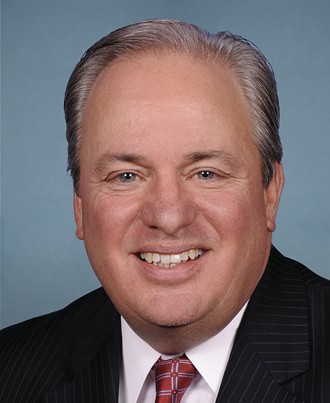From 2010 to 2016, the Pittsburgh metro area saw a negative net migration of about 12,000 native-born residents. This means that about 12,000 more American-born people left the region than arrived here over those six years. In this same time span, the region saw a positive international migration of more than 22,000 people. The region still saw a lot more deaths than births and lost overall population, but in short, immigrants have been propping up the Pittsburgh metro area population.
But on Aug. 2, President Donald Trump held a press conference where he gave support to the Reforming American Immigration for Strong Employment (RAISE) Act, which seeks to cut legal immigration up to 50 percent and give priorities to English-speaking immigrants, among other reforms. The bill was introduced by co-sponsors U.S. senators Tom Cotton (R-Arkansas) and David Perdue (R-Georgia).
U.S. Rep. Mike Doyle (D-Forest Hills), whose district encompasses Pittsburgh, McKeesport and New Kensington, says this bill goes against what Pittsburgh and the region are trying to accomplish. He says he wants people to move here, regardless of what country they were born in.
“Our city is very friendly that way,” says Doyle. "[Pittsburgh] Mayor [Bill] Peduto and a number of us want people. If they are working hard, paying their taxes and are good citizens, we want to find a way to help them be in Pittsburgh.”
Doyle says efforts like the RAISE Act to limit immigration could have a negative effect on Pittsburgh. He says when he met with 20 CEOs at the recent Innovation Summit at the University of Pittsburgh in April, the most important thing the CEOs brought up was an emphasis on access to a skilled workforce. He says Pittsburgh's growing tech industries, like robotics and autonomous vehicles, could be hurt by the RAISE Act because the bill could limit those industries' ability to recruit employees. Even though many of Pittsburgh's immigrants are highly skilled and educated, the strictness of the RAISE Act would create barriers.
The RAISE Act favors immigrants who are younger than 30, have a doctorate, and have a job offer with a high salary, but an immigrant who is older than 35 years old, has a foreign master’s degree in a STEM field, speaks good, but not excellent, English, and has a job waiting that will pay just under $100,000 a year, still wouldn’t qualify. Many large companies from the tech industry have widely criticized the bill.
“When you think of the immigration that is coming to Pittsburgh, many of it is coming from India and Asia, and these people are highly skilled that are filling a need that is not being met locally,” says Doyle. “I know we have a debate about whether that is true, and [whether immigration] is being used to depress wages. While we are getting more people, especially young people, interested in the STEM fields, but as we speak today, there is still a critical shortage.”
Doyle was also critical of the way Trump presented the immigration reform.
“The problem with Trump is he demonizes people,” says Doyle. “He has people believing for whatever reasons that immigrants are not going to be productive citizens. That is why he wants to lower the quota for legal immigration, and why he is putting these new restrictions on them.”
Doyle says that immigrants he has met are hardworking and are focused on starting families and businesses. He says immigrants are an important factor in the Pittsburgh economy and that Trump doesn’t understand that.
A study put out by Allegheny County showed that in 2014 immigrants in the county contributed $217 million in state and local taxes and had a spending power of $1.8 billion that year. (This makes up 6.3 percent of the county’s spending power, which is above the percentage of the county’s immigrant population.)
Doyle would like to see Congress tackle immigration reform, but he wants it done with work from Democrats and Republicans.
The RAISE Act, however, only has support from Trump’s administration and two Republican senators. It has opposition from Democrats and many Republicans, including senators Lindsey Graham (R-South Carolina), Ron Johnson (R-Wisconsin) and Marco Rubio (R-Florida).


